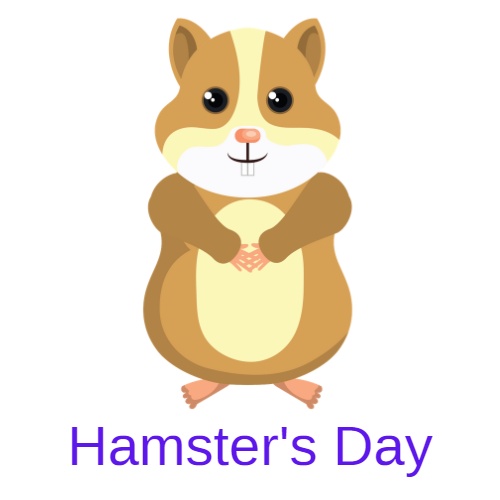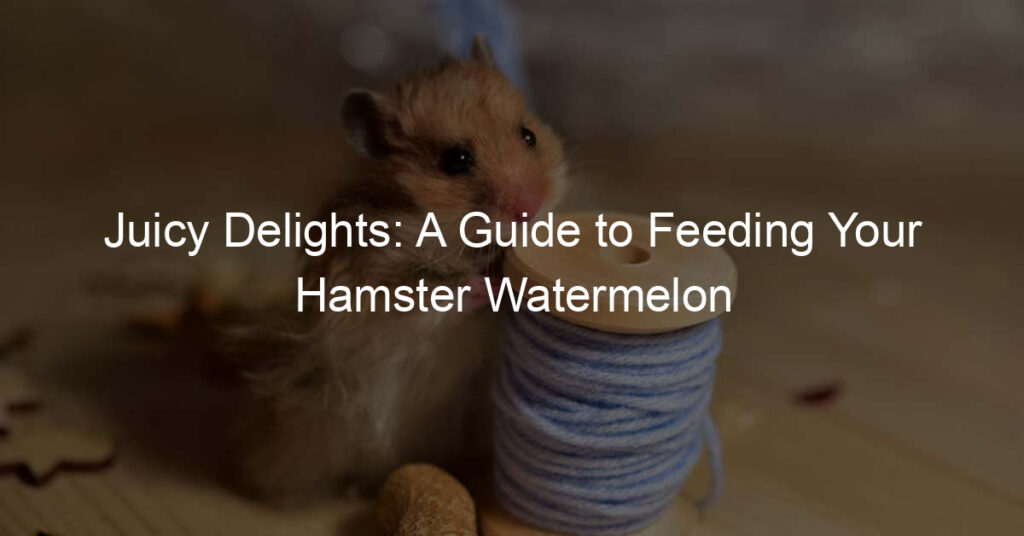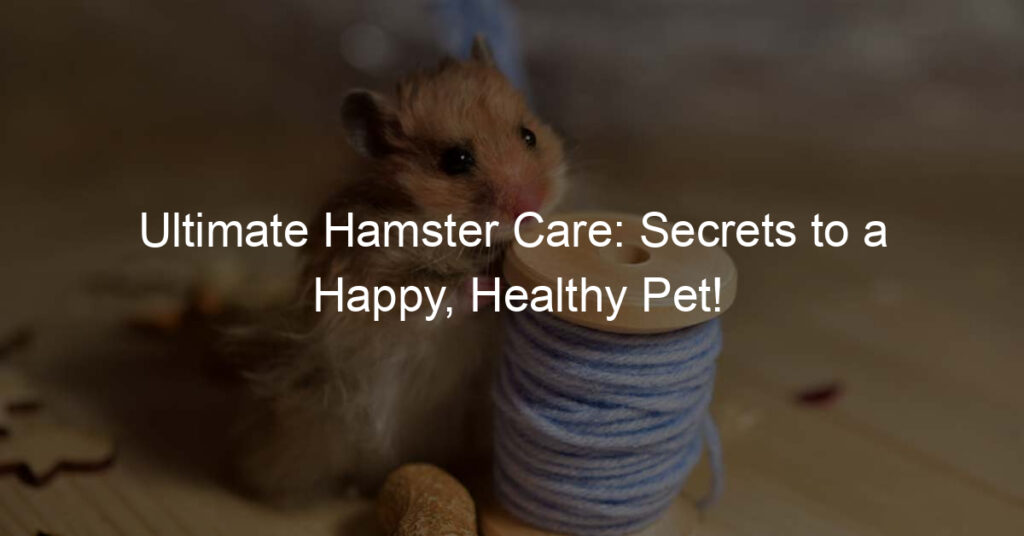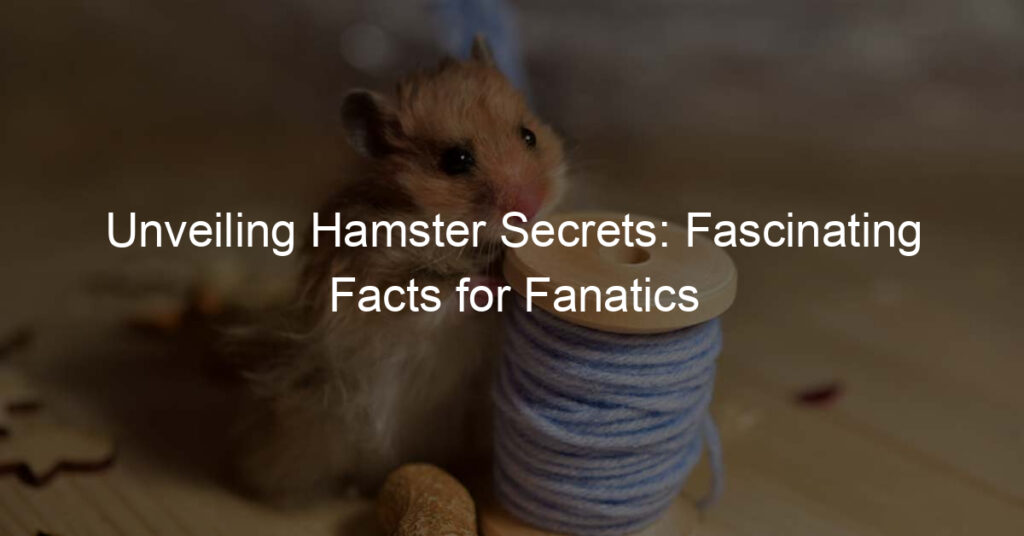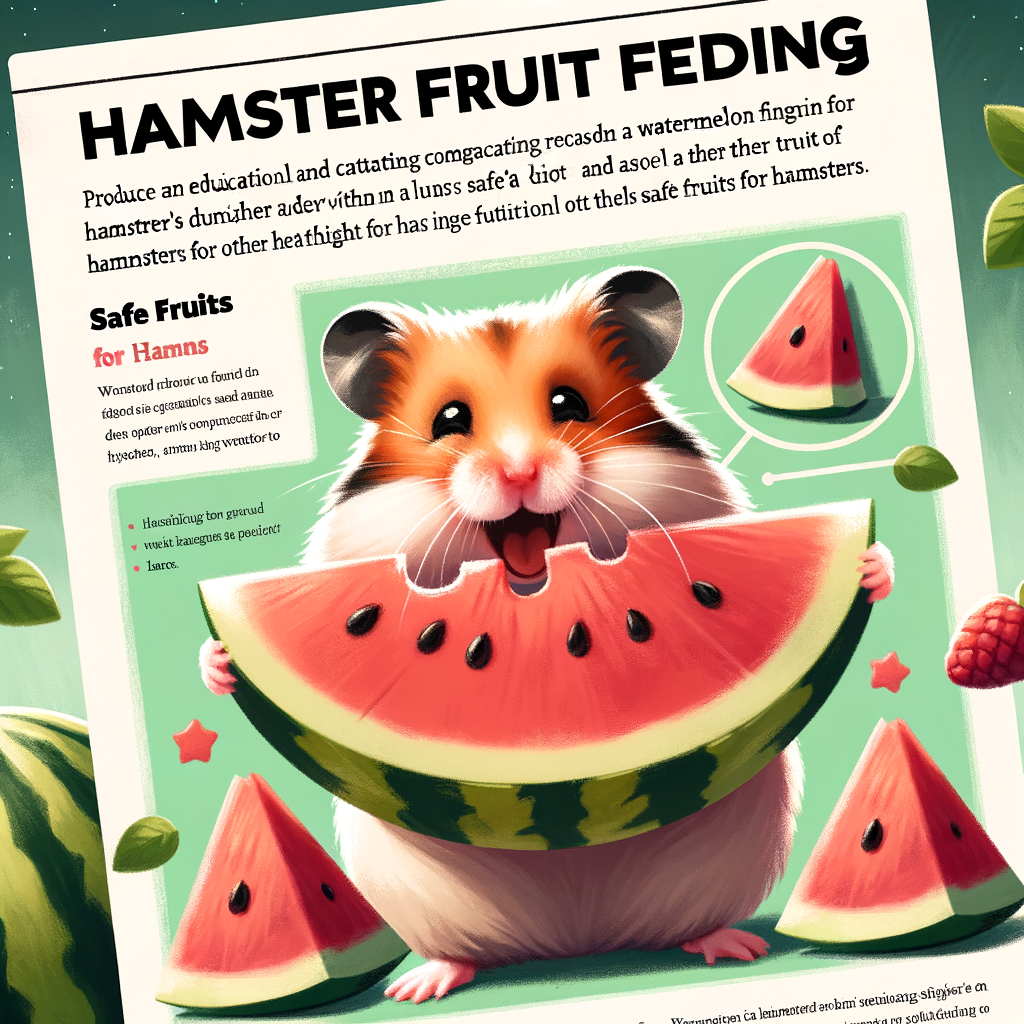
Introduction to Hamster Diet
Understanding the dietary needs of your hamster is crucial for its health and longevity. A balanced diet ensures that your furry friend gets all the nutrients it needs to thrive. Let’s delve into the importance of a balanced diet, common foods, and the role of fruits in a hamster’s diet.
- Importance of a Balanced Diet for Hamsters
- Common Foods in a Hamster’s Diet
- Role of Fruits in a Hamster’s Diet
Just like humans, hamsters require a balanced diet to stay healthy. A balanced diet for a hamster includes a mix of proteins, carbohydrates, and fats. These nutrients are essential for their growth, energy, and overall well-being. Without a balanced diet, hamsters can suffer from various health issues such as obesity, diabetes, and heart disease.
Hamsters are omnivores, which means they eat both plants and meat. Their diet in the wild consists of grains, seeds, vegetables, and insects. In captivity, hamsters thrive on a diet of commercial hamster food which is specially formulated to provide all the necessary nutrients. These foods often come in the form of pellets or mixed seeds. However, it’s also important to supplement their diet with fresh fruits and vegetables.
Fruits play a crucial role in a hamster’s diet. They are a great source of vitamins and minerals, which are essential for the hamster’s immune system. Fruits like apples, pears, and bananas can be given in moderation. However, not all fruits are safe for hamsters. For instance, citrus fruits are too acidic and can cause stomach upset. Therefore, it’s important to know which fruits are safe before feeding them to your hamster.
In the following sections, we will explore more about hamster fruit feeding guide, with a special focus on watermelon, and share a case study on the wonders of watermelon in hamster care. Stay tuned!
Exploring Hamster Fruit Feeding Guide
When it comes to feeding your hamster, it’s important to understand what fruits are safe and beneficial for them. In this guide, we’ll explore a list of safe fruits for hamsters and discuss the benefits of each.
Safe Fruits for Hamsters
Hamsters are omnivores, which means they can eat a variety of foods, including fruits. However, not all fruits are safe for hamsters. Here are some fruits that are not only safe but also beneficial for your hamster’s health:
- Apples (without seeds)
- Pears
- Bananas
- Blueberries
- Strawberries
Now, let’s take a look at the benefits of each of these fruits.
- Apples: Apples are a great source of fiber and vitamin C, which can help improve your hamster’s digestion and immune system.
- Pears: Pears are rich in vitamins and minerals, including vitamin C and potassium, which are essential for your hamster’s overall health.
- Bananas: Bananas are high in potassium and vitamin B6, which can help support your hamster’s heart health and brain function.
- Blueberries: Blueberries are packed with antioxidants, which can help protect your hamster from diseases.
- Strawberries: Strawberries are high in vitamin C and antioxidants, which can help boost your hamster’s immune system and protect them from diseases.
Remember, while these fruits are safe for hamsters, they should be given in moderation as part of a balanced diet. Too much fruit can lead to health problems such as obesity and diabetes. Always remove any uneaten fruit from your hamster’s cage to prevent it from spoiling.
Unsafe Fruits for Hamsters
While fruits can be a delightful treat for your hamster, not all fruits are safe. It’s essential to know which fruits are harmful to your furry friend to ensure their health and longevity. Here are some fruits that you should avoid feeding your hamster:
- Citrus fruits like oranges and lemons
- Avocados
- Grapes and raisins
- Apple seeds
Now, let’s delve into why these fruits are unsafe for hamsters.
Citrus Fruits
Citrus fruits like oranges and lemons are high in acid, which can upset your hamster’s stomach and lead to health issues. They can also cause mouth sores in hamsters, making it painful for them to eat.
Avocados
Avocados are high in fat and can lead to obesity and other health problems in hamsters. Moreover, the pit and skin of avocados contain persin, a toxin that can be harmful to hamsters.
Grapes and Raisins
Grapes and raisins can cause kidney failure in hamsters. Even a small amount can be toxic, so it’s best to avoid these fruits altogether.
Apple Seeds
While apples themselves are safe for hamsters, their seeds contain a small amount of cyanide, which can be harmful to hamsters if ingested.
Remember, it’s always best to consult with a vet or do thorough research before introducing a new food to your hamster’s diet. This way, you can ensure their health and happiness.
Watermelon for Hamsters: A Deep Dive
Hamsters are small, adorable creatures that require a balanced diet for their overall health. One fruit that can contribute to this balance is watermelon. Let’s explore the benefits of watermelon in a hamster’s diet.
Benefits of Watermelon in Hamster Diet
Watermelon is not only a refreshing treat for hamsters, but it also provides numerous health benefits. Let’s delve into the nutritional content of watermelon and how these nutrients benefit our furry friends.
- Nutritional content of watermelon
- How these nutrients benefit hamsters
Watermelon is packed with nutrients that are beneficial for hamsters. It is high in vitamins A, B6, and C, which are essential for a hamster’s immune system and overall health. Watermelon also contains a significant amount of water, which can help keep your hamster hydrated.
| Nutrient | Amount per 100g of Watermelon |
|---|---|
| Vitamin A | 569 IU |
| Vitamin B6 | 0.045 mg |
| Vitamin C | 8.1 mg |
| Water | 91.45 g |
Vitamins A, B6, and C are essential for a hamster’s health. Vitamin A is crucial for their vision, while vitamin B6 is needed for proper brain development and function. Vitamin C, on the other hand, is a powerful antioxidant that helps protect the hamster’s body from harmful free radicals. The high water content in watermelon can also help prevent dehydration in hamsters, especially during hot weather.
In conclusion, watermelon can be a beneficial addition to your hamster’s diet due to its high nutritional content. However, it should be given in moderation and as part of a balanced diet to ensure your hamster’s health and longevity.
Feeding Watermelon to Hamsters: Dos and Don’ts
Feeding your hamster watermelon can be a delightful treat for them. However, it’s important to do it correctly to ensure their health and happiness. Here are some guidelines to follow:
- How to prepare watermelon for hamsters
- How much watermelon to feed
- When to feed watermelon
Preparing watermelon for your hamster is easy. First, remove the rind and seeds as these can be harmful to your hamster. Then, cut the watermelon into small, bite-sized pieces. This will make it easier for your hamster to eat and prevent choking.
While watermelon is a healthy treat, it should not make up the majority of your hamster’s diet. A small piece of watermelon, about the size of a grape, is enough for your hamster. Remember, too much watermelon can lead to diarrhea due to its high water content.
Watermelon can be given to your hamster as a treat once or twice a week. It’s best to feed your hamster in the evening when they are most active. Always remove any uneaten watermelon after a few hours to prevent it from spoiling.
In conclusion, watermelon can be a wonderful treat for your hamster when given in moderation. Always prepare it properly and monitor your hamster’s reaction to the new food. If you notice any changes in their behavior or health, stop feeding them watermelon and consult with a vet.
Case Study: Watermelon Wonders in Hamster Care
Let’s dive into a fascinating case study that demonstrates the impact of watermelon in a hamster’s diet.
-
Story of a Hamster Benefiting from Watermelon in its Diet
Meet Mr. Whiskers, a two-year-old hamster who was experiencing sluggishness and lack of energy. His owner, noticing the change in his behavior, decided to introduce watermelon into his diet. The watermelon was served in small, seedless pieces, making it easy for Mr. Whiskers to consume.
Within a week, the owner noticed a significant change. Mr. Whiskers was more active, his coat looked shinier, and he seemed happier overall. The watermelon provided hydration and essential nutrients, contributing to Mr. Whiskers’ improved health and vitality. This case illustrates the potential benefits of including watermelon in a hamster’s diet.
-
Expert Opinions on the Case
Several hamster care experts have weighed in on Mr. Whiskers’ case. Dr. Jane Peterson, a renowned veterinarian specializing in small animals, stated, “Watermelon, when given in moderation, can be a healthy addition to a hamster’s diet. It’s high in vitamins A and C, which are essential for a hamster’s overall health.”
Another expert, Dr. Robert Hughes, a nutritionist specializing in pet diets, added, “Watermelon is 92% water, which makes it an excellent source of hydration for hamsters, especially during hot weather. However, it should be given in moderation due to its high sugar content.”
The consensus among experts is clear: watermelon can be beneficial for hamsters, but it should be introduced into their diet carefully and in moderation.
In conclusion, the case of Mr. Whiskers highlights the potential benefits of watermelon in a hamster’s diet. However, it’s important to remember that every hamster is unique, and what works for one may not work for another. Always consult with a vet or a pet nutritionist before making significant changes to your pet’s diet.
Conclusion: Hamster Nutrition and Care
In this article, we’ve explored the fascinating world of hamster nutrition and care. We’ve discovered the importance of a balanced diet and the vital role fruits, particularly watermelon, play in maintaining a healthy hamster.
- Recap of the importance of fruits, especially watermelon, in a hamster’s diet:
- Final thoughts on hamster care and nutrition:
Fruits are an essential part of a hamster’s diet. They provide necessary vitamins and minerals that contribute to the overall health and longevity of your furry friend. Watermelon, in particular, is a great choice as it not only provides hydration but also essential nutrients. Remember, moderation is key when feeding fruits to your hamster to avoid health issues like obesity and diabetes.
Hamster care goes beyond just feeding. It involves providing a clean, safe, and stimulating environment for your pet. Nutrition-wise, a balanced diet is crucial. Incorporate a variety of foods, including fruits, vegetables, and high-quality hamster pellets. Always ensure fresh water is available. Regular vet check-ups are also important to monitor your hamster’s health.
In conclusion, taking care of a hamster is a rewarding experience. By understanding their nutritional needs and providing proper care, you can ensure your pet lives a happy, healthy life.
| Key Takeaways |
|---|
| Fruits, especially watermelon, are essential in a hamster’s diet. |
| Hamster care involves more than just feeding; it includes providing a clean, safe, and stimulating environment. |
| Regular vet check-ups are crucial for monitoring your hamster’s health. |
